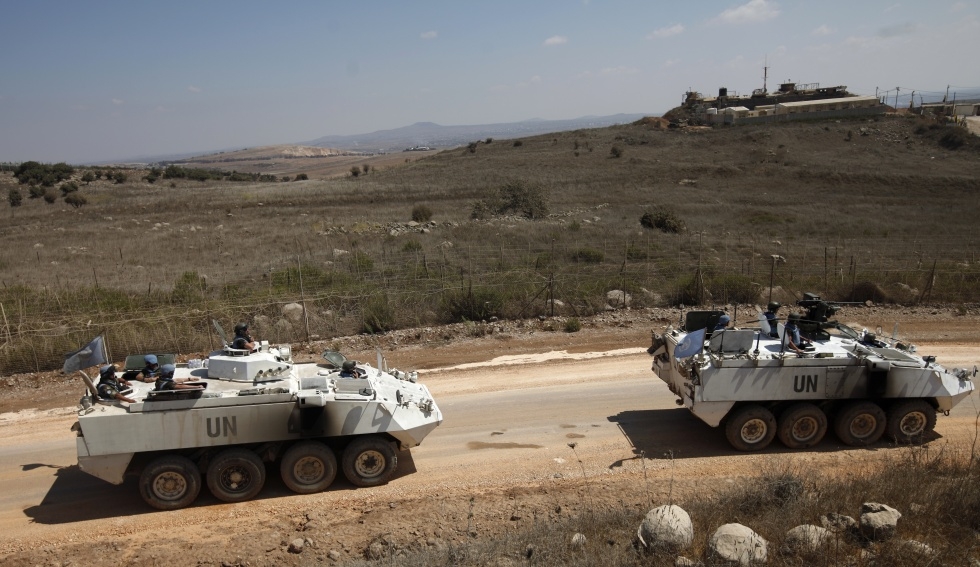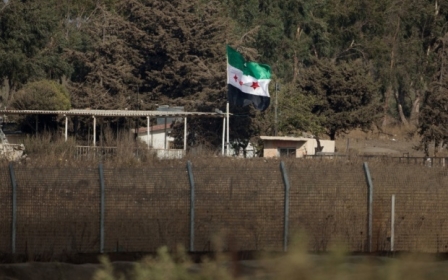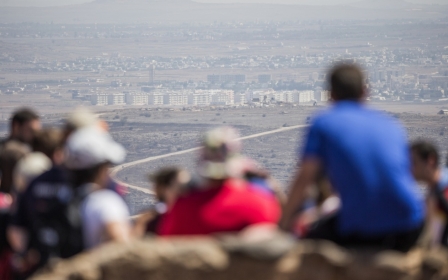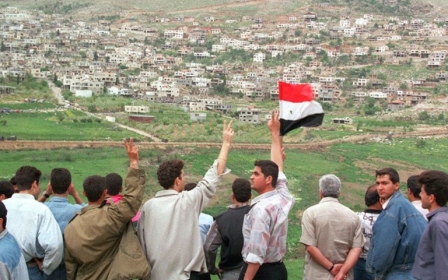UN peacekeepers withdraw from Syria-controlled sector of Golan Heights

Hundreds of UN troops withdrew from the Syrian to the Israeli-occupied sector of the Golan on Monday, an AFP correspondent said, two weeks after Al-Qaeda-linked rebels kidnapped dozens of the peacekeepers.
They crossed in a UN convoy in the afternoon into the Israeli-occupied sector, the correspondent said.
There was no confirmation from the United Nations Disengagement Observer Force (UNDOF), which monitors a 1974 ceasefire between Israel and Syria on the Golan Heights.
It was also reported that a mortar shell fired from Syrian territory fell to earth on Monday in the Israeli-occupied Golan Heights.
The mortar shell, which landed in an area of empty land near the Quneitra crossing, the only border crossing between Syria and the Israeli-occupied part of the territory, left no injuries or damage, according to Israeli radio.
The broadcaster said the shell was believed to have been erroneously fired at the territory amid clashes between Syrian government troops and opposition forces.
The Israeli army has yet to comment on the incident.
In late August, rebels on the Syrian side including Al-Qaeda affiliate Al-Nusra Front seized the Quneitra crossing and kidnapped more than 40 Fijian UNDOF troops, before they were released two weeks later.
They also clashed with 75 Filipino members of the force, who eventually fled a nearby outpost.
Rebels including Al-Nusra have now taken control of most of the Syrian side of the Golan Heights from forces loyal to Syrian President Bashar al-Assad, a Britain-based Syria monitoring group said on Saturday.
The fighting has driven thousands of Syrian families in the area from their homes, the Red Cross said.
"Clashes between government forces and the armed opposition have intensified in recent days in Quneitra governorate -- in Quneitra city in particular, where access to clean water, food, and health care is limited," the International Committee of the Red Cross said in a statement.
The ICRC said it has provided emergency relief for more than 50,000 people, but warned the number of displaced people was "expected to grow."
Israel seized 1,200 square kilometres (460 square miles) of the Golan during the Six-Day War of 1967, then annexed it in 1981 in a move never recognised by the international community.
Some 510 square kilometres of the Golan remain on the Syrian side of the ceasefire line, with UNDOF overseeing a buffer zone stretching some 70 kilometres from Lebanon in the north, to Jordan in the south.
UNDOF's mandate is renewed every six months, and currently runs until December 31.
Six countries contribute troops to the 1,200-strong UN force on the Golan: Fiji, India, Ireland, Nepal, the Netherlands and the Philippines.
Although Israel and Syria have observed a tenuous truce since Israel seized most of the Golan Heights in the 1967 war, the Syria uprising, which began in 2011, had led to several incidents of fire exchange across the once-peaceful borders.
Stray rounds have caused damage and injuries in Israel on several occasions, including shells from fighting between Syrian troops and rebels, which hit Israeli posts in the Golan Heights.
Israel maintains that it is distant from the regional conflicts that sprang out of the Arab Springs.
"Israel’s policy has been to stay out of the conflict as much as possible but make sure the borders are secure," said Daniel Nisman, an Israeli commentator and security analyst, speaking to Middle East Eye.
Peter Lerner, a spokesman for the Israeli army agrees: "This is not a conflict that we are involved in," he told The Washington Post. "It [the Syrian war] is an internal conflict. However, we need to be prepared, and we are not willing to have the fighting spill over into Israel."
The Israeli military has hit Syrian army positions following incoming fire attacks, even when it is not immediately known who the perpetrators were.
"Israel has retaliated into Syria 12-15 times," said Nisman.
"It will strengthen its borders and will continue to launch occasional airstrikes into Syria when required to deal with a particularly imminent threat," he added.
However, Israeli military action is not likely to go deep into Syria, analysts say.
"We are unlikely to see Israeli incursions deep into Syria to try to reclaim territory or push back groups," Rafaello Pantucci, director of international security studies at the Royal United Services Institute (RUSI) told MEE.
Middle East Eye propose une couverture et une analyse indépendantes et incomparables du Moyen-Orient, de l’Afrique du Nord et d’autres régions du monde. Pour en savoir plus sur la reprise de ce contenu et les frais qui s’appliquent, veuillez remplir ce formulaire [en anglais]. Pour en savoir plus sur MEE, cliquez ici [en anglais].




